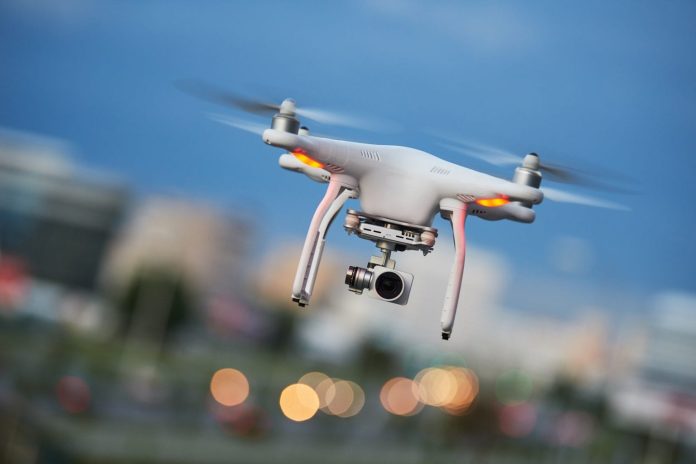Most people in Britain would support regulated usage of unmanned aerial vehicles (UAVs), or drones, for critical services and industrial enterprises, according to a report by Vodafone.
Eighty per cent of the British public would support their adoption if better safety, security and monitoring measures were in place.
The number is higher, at 86 per cent, in support of drones for emergence response. Four in five (79 per cent) support regulated usage of drones for police assistance, and two thirds (61 per cent) support their usage for environmental conservation.
The UK operator polled 2,000 members of the public about drone usage. Their perceived usefulness is clear: 92 per cent said drones equipped with cameras could help fire brigades tackle fires through improved visual imagery from above; a similar number see drones as an aid to natural disaster relief operations.
Other uses include surveying crops and livestock and assessing flood damage.
Vodafone’s interest is in SIM-enabled and cellular-connected UAVs. Its report makes a number of policy recommendations. These include a ‘blue light’ drones fund for emergency services and NHS trusts, and an Unmanned Traffic Management (UMT) system to co-ordinate drone flights with other airspace users.
Vodafone has its own system to detect drones entering no-fly zones and force them to hover or land. Mobile connectivity, it reckons, can be used to construct airspace geo-fences as virtual barriers to prevent drones from entering no-fly zones such as airports, or indeed leaving their designated fly zones.
Vodafone trials have demonstrated airspace geo-fences can be generated and erased using its proposed ‘radio positioning system’ (RPS), which uses an LTE modem and SIM attached to a UAV, to identify when a drone has entered the designated area.
It wants to use 5G to support many drones at the same time and reduce delays in sending commands and information.
Vodafone joined a UK UAV-testing group, called the National Beyond-visual-line-of-sight Experimentation Centre (NBEC) Consortium, last year as network provider to develop tools and processes to enable unmanned aerial vehicles (UAVs) to fly safely in the same airspace as manned aircraft.
Vodafone will provide 4G and 5G connectivity to NBEC, which includes Cranfield University, Blue Bear Research and Thales. The consortium aims to create an ‘experimentation corridor’, a controlled strip of airspace between Blue Bear’s facility in Oakley, in Bedford, and Cranfield University.
UAVs make use of an inbuilt SIM card to enable the safe operation and management of drones. Compared to those controlled via hand-held radio transmitters, SIM-enabled drones can be registered and tracked over a greater radius, and are a key enabler towards achieving BVLOS, said Vodafone.
“Mobile networks are also able to send data such as changing weather forecasts or air traffic control updates to and from a drone. They complement GPS, which is highly accurate in providing location information, but can be jammed or compromised,” the company said in a statement.
The new report cites figures from PwC that estimate drones will contribute a £42 billion increase in UK GDP and £16 billion in annual cost savings to the UK economy by 2030.
Licensed drones could grow in number from 100,000 in 2022 to 900,000 by 2050, according to the Department of Transport in the UK.
Nick Jeffery, chief executive at Vodafone UK, said: “Drones can provide crucial information to emergency services responding to incidents. They can assess fires, deliver medical supplies, and help businesses survey hazardous conditions such as construction sites, power lines and our own mobile masts quicker and more safely.
“On the flip side, rogue drones can pose security risks. By working in collaboration with government, the public sector and regulators, we can shape legislation to ensure the transition from a consumer toy to a vital support service while protecting our critical infrastructure.”
Professor Iain Gray, director of aerospace at Cranfield University, commented: “Drones have a wide range of potential uses which are currently under-exploited. The findings of this report are reassuring and show that public opinion is supportive of using drones for a greater variety of tasks, if better safety, security and monitoring measures are in place.
“Collaboration will be key, and the work we are doing with Vodafone and other consortium members at our NBEC is providing a safe and managed environment for drone and unmanned aircraft experimentation, working towards their integration into controlled and uncontrolled airspace.”

